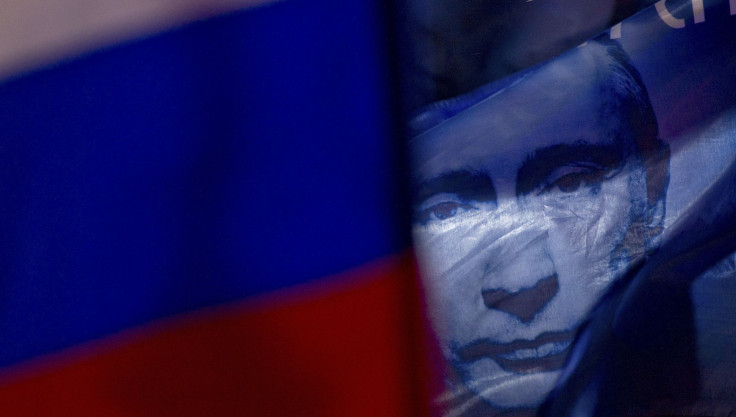Russia's Food Import Restrictions Will Create Mix Of Winners & Losers

Russian President Vladimir Putin’s decision to punish countries that have imposed a series of sanctions on his country by banning the import of certain food and agricultural products may cause difficulties for Russian consumers, but experts say it could have benefits for some parties.
Russia announced that it would institute such a ban earlier this week, and on Thursday laid out the specifics, revealing that it would prohibit fish, meat, dairy products and a variety of other agricultural goods from the sanctioning countries.
As the ban against the United States, European Union, Japan and other nations’ food products rolls out, countries not affected by the prohibition have a unique opportunity to step in and fill the gap left behind by the economic giants.
And even savvy producers based in nations implicated by the ban will likely be able to find ways to get their products to Russia’s sizeable consumer base, some analysts say.
Brazilian pro-meat association Associação Brasileira de Proteína Animal (ABPA) said Wednesday that the South American country is ready to increase exports of chicken to Russia, according to Reuters. ABPA president Francisco Turra said Brazilian chicken producers "have a very large spare capacity,” and that the country could send increase its annual chicken exportation to Russia from 300,000 to 450,000 tons as a result of the ban.
The Brazilian announcement came shortly after Argentina signaled its interest in boosting exports to Russia, according to Russian news outlet Ria Novosti.
“The Russian market is and has always been interesting to Argentina. The only sad fact for Argentina’s industries is that there are export restrictions imposed by the country’s government," observed Miguel Schiariti, head of the Argentinian Chamber of Meat Industry.
The announcements came within 24 hours of Putin's announcing the ban on imported agriculture products from the sanctioning countries, a demonstration of how much interest there is in such arrangements, particularly on the part of countries that have become friendlier with Russia in recent years. Russia has made sizeable investments in South America in areas including nuclear power, gas exploration and technology in recent years.
But companies from countries banned from exporting food and agricultural products to Russia may be able to circumvent the prohibition, according to Howard Dorman, a partner who specializes in the food and beverage industry at the Edison, New Jersey, office of WeiserMazars, the U.S. member firm of the global CPA firm Mazars Group. He said it could be a lucrative opportunity for companies that manage to find ways to get their products into Russia, given that food prices are expected to rise there especially in the short-term, but that it may require a creative strategy.
“In talking to a lot of our manufacturers and distributors, they may see an immediate impact on their business but in the long term I believe that they’ll find a way to get product into Russia,” he said Friday.
“I’ve got to believe that if an American company is just rerouting its product through another country, I’m sure Russia will find a way to stop that, but there’s always ways around it. One way might be to manufacture product in a non-sanctioned country.”
Meanwhile, major Russian companies will likely find great success as the food market becomes less saturated and prices rise in coming months, according to Dorman. And it could even spur new economic opportunity, as Russian entrepreneurs take advantage of the supply gap.
“I’m sure that there will be a way for the few elites that own the major food companies in Russia to do very well,” he said. “And maybe this will provide an opportunity for manufacturing in Russia. Can they raise chickens? I think they probably can.”
While the ban may be good for companies in Russia and countries that were not affected by it, Russian citizens could see big price jumps at the grocery store, Bob Stallman, president of the American Farm Bureau Federation, said, according to the Wall Street Journal.
“It is unfortunate that the biggest losers in this will be Russian consumers, who will pay more for their food now as well as in the long run,” he said.
And European companies could be in for big losses, the Journal reported, with Poland and Norway likely to be hardest hit by the ban, as they each sold $1 billion worth of the products now prohibited from entering Russia in 2013 alone.
Russia’s move to limit imports did not come as a total shock to Russia-watchers, as the Russian broadcaster RT reported Tuesday that Prime Minister Dmitry Medvedev had discussed potential responses to sanctions during an official meeting.
“A topic I would like to discuss concerns the consequences of the decision a number of governments have taken in relation to our carriers. We need to discuss possible retaliation,” Medvedev said during an official meeting, according to RT.
And the most recent ban came on the heels of a similar measure against Poland. Russia began banning imports of Polish fruits and vegetables earlier this week, according to the Associated Press. Russian authorities said the ban was instituted because of supposed Polish health violations, but Polish leaders have said they believe it was actually a response to the E.U. sanctions, which Poland has supported.
© Copyright IBTimes 2024. All rights reserved.





















